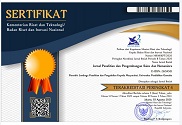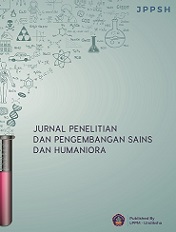Manajemen Pondok Pesantren Asy-syamsiyah Denpasar Bali (Kompetensi Guru dan Bimbingan Potensi Santri)
DOI:
https://doi.org/10.23887/jppsh.v1i1.12924Keywords:
management, competence of teachers, potential santriAbstract
The research aims to determine the strategy used Pondok PesantrenAsy-Syamsiyah in overcoming the problems that exist, to determine the increase
in knowledge management systems and skills of teachers Pondok Pesantren
Asy-Syamsiyah, to determine the role of Ash-Syamsiyah boarding school in
guidance santri. This study uses qualitative research. The data obtained in this
research through direct observation of researchers examine and follow the
activities at the Pondok Pesantren As-Syamsiyah Denpasar Bali, interview the
researchers interviewed teachers, administrators, and students is in boarding
school, from books to documents in the administration there in the office,
photos and other documents. The study yielded that the competency of teachers
is lacking with the lack of training and education boarding school teachers,
teachers who lack formal education can affect the management manage. In
developing the potential of students, teachers provide training in accordance
with the talents of students outside of active learning.
Downloads
Published
2018-01-05
Issue
Section
Articles
License
Authors who publish with the Jurnal Penelitian dan Pengembangan Sains dan Humaniora agree to the following terms:
- Authors retain copyright and grant the journal the right of first publication with the work simultaneously licensed under a Creative Commons Attribution License (CC BY-SA 4.0) that allows others to share the work with an acknowledgment of the work's authorship and initial publication in this journal.
- Authors are able to enter into separate, additional contractual arrangements for the non-exclusive distribution of the journal's published version of the work (e.g., post it to an institutional repository or publish it in a book), with an acknowledgment of its initial publication in this journal.
- Authors are permitted and encouraged to post their work online (e.g., in institutional repositories or on their website) prior to and during the submission process, as it can lead to productive exchanges, as well as earlier and greater citation of published work. (See The Effect of Open Access)










